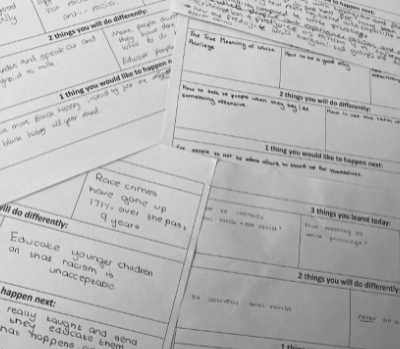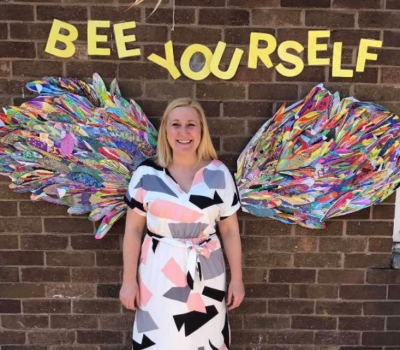


Our team sorts through all blog submissions to place them in the categories they fit the most - meaning it's never been simpler to gain advice and new knowledge for topics most important for you. This is why we have created this straight-forward guide to help you navigate our system.


And there you have it! Now your collection of blogs are catered to your chosen topics and are ready for you to explore. Plus, if you frequently return to the same categories you can bookmark your current URL and we will save your choices on return. Happy Reading!
You Can Lead a Student to a Textbook, But You Can’t Make Them Learn

If you’re here, at Nexus, reading blogs like this one, it’s a safe bet that education is something that your attention is focused on. And that’s perfectly understandable because education is important. The education system is, in fact, one of the foundation stones of modern society. It’s where people learn the knowledge and skills they will need in order to pursue their dreams and ambitions.
But you try telling young children that.
The fact is, you could lecture young students on the importance of a good education all day, only to find that most of them stopped listening five minutes in; which neatly illustrates the problem. If you were to ask your students what they would like to do on a particular day, an honest answer probably wouldn’t include schoolwork. They’d want to do something they find fun or interesting. And, unfortunately, essential schoolwork is not always either of those things for every student. If they’re uninterested in maths, for instance, it doesn’t matter how many problems you give them to solve, they’re unlikely to change their minds. And the early days of their education will set the tone for the rest of it. If they come to associate school with boredom, it can result in them becoming reluctant students. Instead, it’s very important that they view their schoolwork as fun, or at least engaging. But how do you make learning fun?
Play Hard, Work Hard
Fortunately, educators have come to realize, there’s a simple approach to fixing this. And it involves looking back at the earliest way children start to learn; they play. A baby’s cognitive and physical development isn’t driven by them knowing that it’s important to get on with it. They develop these things as an entirely unintentional side effect of playing and having fun. And this is a principle which can be applied to structured education as well to help students to consider learning fun.
If you can’t make a student love a subject itself, then you need to present it in a way that is engaging. For example, you could simply place a worksheet with a lot of maths problems in front of your students and hope for the best. Or, you could build a game or story around the problems in order to draw in their interest. Board games are a simple premise you can use to get your students invested in solving different problems. Or, you could build a story around the problems and make an adventure out of it. So, instead of simply solving maths equations, they’re working out the answers they need to crack a code.
I’ve been using maths as an example so much because, as a student, it was my go-to example of a subject that didn’t interest me. But, obviously, different people have different preferences for subjects. Fortunately, with enough creativity, this is an approach you can apply to any subject. And it doesn’t have to be a sit-down exercise, either. Sure, you can make any amount of English games that they can do at their desks. However, by incorporating a bit of moving around, you can make it more of an adventure that your students will happily engage with.
Not that you should reserve games for encouraging your students to consider learning fun. A classroom isn’t just a place of learning; it’s also a community. Starting the school year with some activities to help your students bond is always a good idea. And games are also a good way of refreshing your students’ motivation and focus between different activities.
Ultimately, while there might be some temptation to dig your heels in and expect your students to ‘just get on with it’’, this is rarely a good idea. Changing your approach and meeting your students halfway will often make things easier for them, which will, in turn, make things easier for you. By trying to make learning fun for your students, you’ll have to put up with less resistance.

The author

Read more

Read more

Read more

Read more

Read more

Read more

Read more

Read more


Are you looking for solutions? Let us help fund them! Nexus Education is a community of over 11,000 schools that come together to share best practise, ideas and CPD via online channels and free to attend events. Nexus also offers funding to all school groups in the UK via nexus-education.com


Established in 2011, One Education is a company at the heart of the education world, supporting over 600 schools and academies. Our unique appeal as a provider is in the breadth and synergy of the services we offer, supporting school leaders, teachers and support staff to achieve the best possible outcomes for their pupils and staff.

School Space is a social enterprise that has empowered schools for over 12 years through their profitable and hassle-free lettings services. So far, they’ve generated over £5 million in revenue for education, helping to connect over 200 schools with their local communities.


Unify is an online sales and marketing tool that allows users to create tailored personalised documents in moments.


There’s nothing special about the energy we sell. In fact, it’s exactly the same energy as all our competitors provide. But there is something special about the way we do it. Where others complicate the process, we simplify it. Where others confuse customers with hidden terms, we’re an open book. And where others do all they can to make as much money from their customers as possible, we do all we can to make as little. Everything we do, we do it differently. Our customers are a privilege. One we’ll never take advantage of.


Securus provide market-leading monitoring solutions to safeguard students on ALL devices both online and offline. We also offer a full monitoring service, where we carry out the monitoring on behalf of the school, freeing up valuable staff resources. From the smallest school to large MAT groups, Securus offers safeguarding protection for all!


Bodet Time offers dedicated solutions to education through lockdown alerts, class change systems, PA and synchronised clock systems. Improving time efficiency of the working and school day; ensuring safety through lockdown alerts; increasing communication with customised broadcast alerts.


Robotical makes Marty the Robot - a walking, dancing coding robot that makes programming fun and engaging for learners as young as 5. Our robots come with a full Learning Platform that has complete teaching resources, to make lesson planning a breeze.